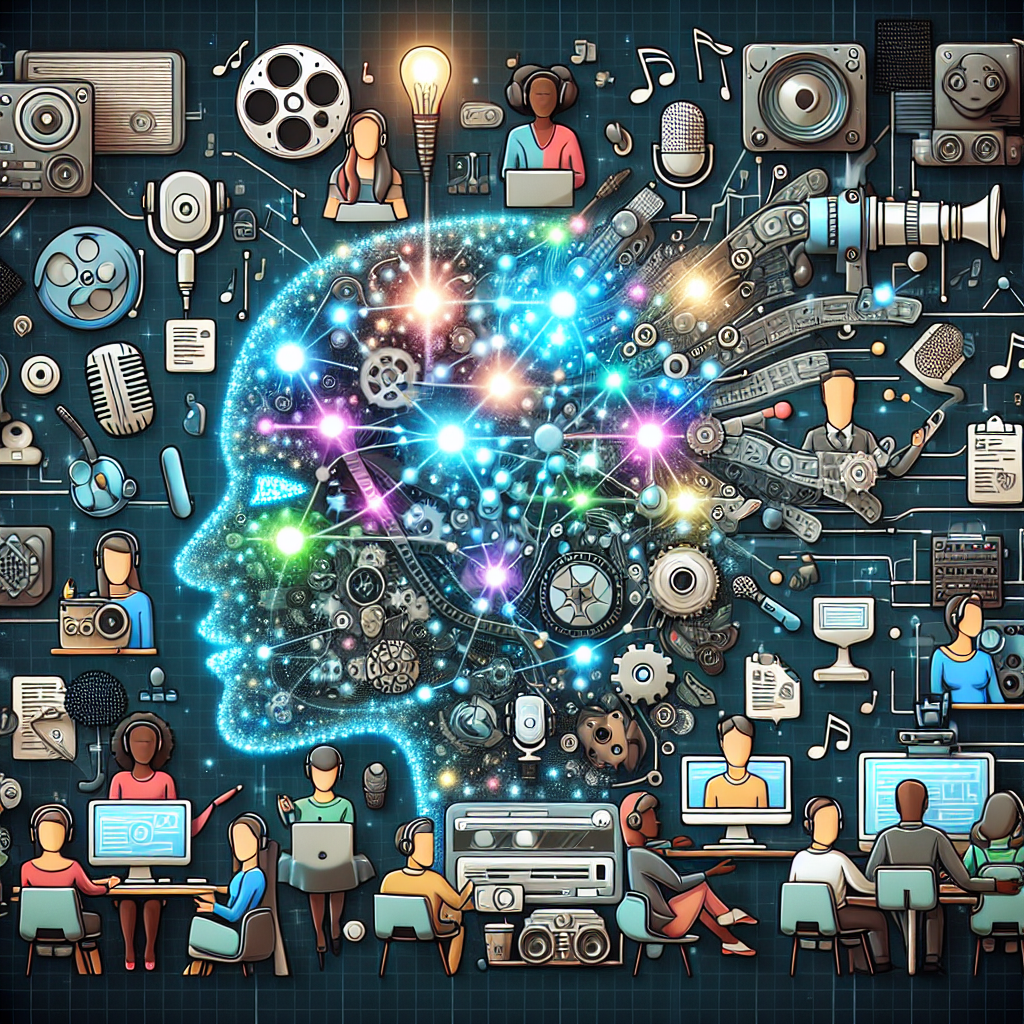In recent years, there has been a growing focus on improving workplace diversity in the entertainment industry. From film and television to music and theater, there has been a push for greater representation of marginalized communities both in front of and behind the camera. One tool that has the potential to help in this effort is artificial intelligence (AI).
AI has the ability to analyze large amounts of data quickly and efficiently, which can help identify patterns of bias and discrimination in the hiring and casting processes. By using AI to analyze job postings, resumes, and casting calls, companies can ensure that they are not inadvertently excluding qualified candidates based on factors such as race, gender, or sexual orientation. This can help to create a more diverse and inclusive workforce in the entertainment industry.
One way that AI can improve workplace diversity in the entertainment industry is through the use of blind hiring techniques. Blind hiring involves removing identifying information from resumes and applications so that hiring decisions are based solely on qualifications and experience. AI can be used to anonymize resumes and applications, making it easier for companies to focus on the skills and abilities of candidates rather than their demographic characteristics.
AI can also help to reduce bias in the casting process by analyzing scripts and character descriptions to ensure that they are not reinforcing harmful stereotypes or excluding certain groups of people. By using AI to review scripts and suggest changes, companies can create more diverse and inclusive content that accurately reflects the world we live in.
In addition to improving workplace diversity, AI can also help to increase representation in the entertainment industry by identifying talent from underrepresented communities. By analyzing social media and other online platforms, AI can identify emerging artists and performers who may not have had access to traditional industry networks. This can help to level the playing field and provide opportunities for talent from all backgrounds to succeed in the entertainment industry.
While AI has the potential to improve workplace diversity in the entertainment industry, there are also challenges and limitations to consider. For example, AI algorithms are only as good as the data they are trained on, and if that data is biased or incomplete, it can perpetuate existing inequalities. Companies must be mindful of the limitations of AI and take steps to ensure that their algorithms are fair and unbiased.
There are also concerns about the potential for AI to replace human decision-making in the hiring and casting processes. While AI can help to streamline these processes and reduce bias, it is important for companies to remember that human judgment and intuition are still valuable and necessary. AI should be used as a tool to support decision-making, rather than as a replacement for human judgment.
In conclusion, AI has the potential to improve workplace diversity in the entertainment industry by helping to identify and address bias in hiring and casting processes. By leveraging AI technology, companies can create a more inclusive and representative workforce that reflects the diversity of the world we live in. However, it is important for companies to be mindful of the limitations of AI and to use it responsibly to ensure that it is not perpetuating existing inequalities. By combining the power of AI with human judgment, companies can create a more diverse and inclusive entertainment industry that benefits everyone.
FAQs:
Q: Can AI completely eliminate bias in the entertainment industry?
A: While AI has the potential to reduce bias in hiring and casting processes, it is not a perfect solution. Companies must be mindful of the limitations of AI and take steps to ensure that their algorithms are fair and unbiased.
Q: How can companies ensure that their AI algorithms are fair and unbiased?
A: Companies can ensure that their AI algorithms are fair and unbiased by using diverse and representative data sets, regularly monitoring and testing their algorithms for bias, and involving human oversight in the decision-making process.
Q: What are some potential challenges of using AI to improve workplace diversity in the entertainment industry?
A: Some potential challenges of using AI to improve workplace diversity in the entertainment industry include concerns about data privacy, the potential for AI to replace human judgment, and the need for companies to be mindful of the limitations of AI technology.
Q: How can AI help to increase representation in the entertainment industry?
A: AI can help to increase representation in the entertainment industry by identifying talent from underrepresented communities and providing opportunities for emerging artists and performers who may not have had access to traditional industry networks.

